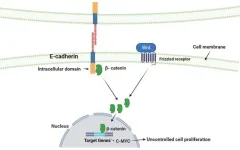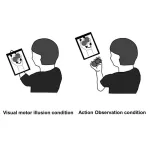(Press-News.org) Embargoed for release until 5:00 p.m. ET on Monday 25 December 2023
Annals of Internal Medicine Tip Sheet
@Annalsofim
Below please find summaries of new articles that will be published in the next issue of Annals of Internal Medicine. The summaries are not intended to substitute for the full articles as a source of information. This information is under strict embargo and by taking it into possession, media representatives are committing to the terms of the embargo not only on their own behalf, but also on behalf of the organization they represent.
----------------------------
1. ACP says barriers to participating in the electoral process must be removed
Full text: https://www.acpjournals.org/doi/10.7326/M23-2293
URL goes live when the embargo lifts
Voting in U.S. elections and health are directly connected and ensuring equitable access to the electoral process would advance health equity, says the American College of Physicians (ACP) in a new policy brief published today in the Annals of Internal Medicine. In the paper, ACP makes recommendations about what needs to be done to inform physicians, medical students, and other health care professionals on the links between electoral processes and health, encourage civic participation, and offers policy recommendations to support safe and equitable access to electoral participation to advance health equity for both patients and health care professionals.
Low voter turnout rates and inequitable electoral structures, such as gerrymandered districts, can skew policy decisions toward the preferences of a smaller group and further exclude individuals and communities who have been historically marginalized and excluded from decision making processes. Civic participation connects individuals to their community and empowers them with agency in decision making.
The paper states that ACP recognizes that voting impacts health and health care and supports policies that ensure safe and equitable access to voting, opposing the institution of barriers to both the process of voter registration and the act of casting a vote.
Additionally, ACP supports the drawing of fair, representative, and non-partisan electoral districts and recognizes that partisan gerrymandering may exacerbate health inequities through the disenfranchisement of vulnerable communities and supports efforts to end the practice of partisan gerrymandering.
ACP encourages medical students, residents, physicians, and other health care professionals to vote, supports efforts to eliminate barriers to their participation in the electoral process, and encourages non-partisan health care-sponsored voter engagement as a strategy to increase health equity for patients and health care professionals.
Media contacts: For an embargoed PDF, please contact Angela Collom at acollom@acponline.org. To speak with someone from ACP, please contact Andrew Hachadorian at AHachadorian@ACPonline.org.
----------------------------
2. ACP Underscores the Importance of Physician-Led Team-Based Care in New Policy
Abstract: https://www.acpjournals.org/doi/10.7326/M23-2260
URL goes live when the embargo lifts
Team-based care is associated with better patient outcomes and lower burnout for physicians, but despite these benefits barriers remain to its adoption, says the American College of Physicians (ACP) in a new policy paper. In the paper, ACP makes recommendations on professionalism, payment models, training, licensure, and research to support the expansion of dynamic clinical care teams. The policy is published in Annals of Internal Medicine.
ACP recommends that physicians should be the primary leaders for health care professionals working together in a multidisciplinary team-based care model. Physicians have extensive education, skills, and training that make them most qualified to exercise advanced clinical responsibilities within teams and they are not interchangeable with other health care professionals. The paper goes on to recommend that clinical and coordination responsibilities within the team be determined based on what is in the best interest of the patient, with patients being made aware of the unique qualifications of all of the team members.
The paper affirms that the purpose of licensure must be to ensure public health and safety; and state licensing bodies need to recognize the different skills, training, clinical experience, and demonstrated competencies of health care professionals and should only allow the independent practice of medicine to be performed by physicians. Lastly, the paper states that in order to promote team-based care, payment and delivery models need to be redesigned and continued research must be done to achieve the best outcomes for patients.
Media contacts: For an embargoed PDF, please contact Angela Collom at acollom@acponline.org. To speak with someone from ACP, please contact Jacquelyn Blaser at jblaser@acponline.org.
----------------------------
3. Black internal medicine residents continue to face knowledge assessment bias
Abstract: https://www.acpjournals.org/doi/10.7326/M23-1588
Editorial: https://www.acpjournals.org/doi/10.7326/M23-3141
URL goes live when the embargo lifts
U.S.-born Black residents in internal medicine programs continue to face knowledge assessment bias according to an analysis published in Annals of Internal Medicine. Black residents were rated lower on performance assessments by their residency program leadership before and after adoption of the Milestone rating system, an assessment tool developed in 2014 to address deficiency in the previous ratings system. After implementation of Milestone, biases against all underrepresented groups and Asian residents were reduced. Despite this decline, substantial bias persisted for US-born Black residents and US-born Asian residents in terms of receiving a top score.
In 2014, the Accreditation Council for Graduate Medical Education, in collaboration with the American Board of Internal Medicine (ABIM), replaced the Resident Annual Evaluation Summary (RAES) rating system with the Milestone rating system to address several shortcomings in existing residency assessment and feedback methods. Although past research indicates that these types of changes have the potential to reduce evaluation bias, studies examining changes in bias across rating systems are sparse.
Researchers from ABIM compared evaluation medical knowledge ratings for 59,835 U.S.-born and non-U.S.-born Black, Latino, and Asian internal medicine residents during the pre-Milestone (2008 to 2013) and post-Milestone (2015 to 2020) periods, using U.S.-born non-Latino White residents as the comparison group. The authors found that controlling for initial ABIM certification exam score, a standardized and blinded, unbiased measure of knowledge ratings biases against these minoritized groups were large and decreased significantly for both U.S.-born and non-U.S.-born Asian and Latino residents. However, this decrease was much less substantial for U.S.-born Black residents where substantial bias persisted. The authors state that this finding is particularly concerning given the already low representation of Black residents in clinical care and the history of bias against Black Americans. They also point out that, only 6 percent of the residents identified as Black, and 34 percent of Black residents were U.S.-born in contrast to 90 percent of the U.S. Black population being born domestically.
In an accompanying editorial, authors from the George Washington University School of Medicine and Health Sciences suggest that the current study is an important step in unraveling and combating the persistent nature of bias in the evaluation of internal medicine residents of color. Considering the study findings, specialty societies should continue to raise awareness of the potential for bias in resident evaluations and provide training and tools, and training programs should ensure that trainees are assessed with intentionally designed systems that provide accurate, competency-based information and behavior-based narratives based on observations from multiple trained assessors.
Media contacts: For an embargoed PDF, please contact Angela Collom at acollom@acponline.org. To speak with the corresponding author, Bradley M. Gray, PhD, please contact John Held at JHeld@ABIM.ORG.
END
ACP says barriers to participating in the electoral process must be removed
2023-12-25
ELSE PRESS RELEASES FROM THIS DATE:
Electronic “soil” enhances crop growth
2023-12-25
Barley seedlings grow on average 50% more when their root system is stimulated electrically through a new cultivation substrate. In a study published in the journal PNAS, researchers from Linköping University have developed an electrically conductive “soil” for soilless cultivation, known as hydroponics.
“The world population is increasing, and we also have climate change. So it’s clear that we won’t be able to cover the food demands of the planet with only the already existing agricultural methods. But with hydroponics we can grow food also in ...
Unraveling the mystery of hereditary diffuse gastric cancer
2023-12-25
Gastric cancer, a significant global health burden, claims over 7% of cancer-related deaths annually. Although only 1-3% of cases have a genetic basis, understanding these genetic drivers is crucial for developing preventative strategies.
Gastric cancer, a formidable foe in the global health arena, casts a long shadow over millions of lives each year. While its tendrils reach far and wide, a distinct subset – hereditary diffuse gastric cancer (HDGC) – emerges as a particularly aggressive and enigmatic adversary. This group of cancers, accounting for roughly 10% ...
Power of illusion can help with learning new movements
2023-12-23
Tokyo, Japan – Researchers from Tokyo Metropolitan University showed that visual aids which create the illusion of movement, like a screen placed in front of one’s hand showing the hand move, can improve motor performance and the early stages of motor learning. Compared to observing third-person motions, functional near-infrared spectroscopy data also showed greater changes in brain activity in regions associated with motor learning. Findings like this might inform new treatment strategies for hemiplegic stroke patients.
Visual-motor illusion (VMI) is the curious illusion of watching your body move even while it is still. ...
Live Christmas trees affect indoor air chemistry, NIST researchers find
2023-12-22
Every holiday season, Americans buy nearly 30 million live Christmas trees. Many families enjoy not only having a live tree inside their homes but also smelling the fresh fragrance it creates. That smell comes from chemicals called volatile organic compounds (VOCs). However, little is known about how much is emitted and whether they have any health impacts.
“Our nose is a good chemical sensor,” said Dustin Poppendieck, an environmental engineer at the National Institute of Standards and Technology (NIST). “We know that these trees are emitting something, ...
Evolution of tuberculosis – in new light
2023-12-22
Recent research suggests that the emergence of tuberculosis infection in human populations dates back tens of thousands of years earlier than previously known cases in the Middle East. In collaboration with an international research team, Hungarian researchers have edited and published a special issue of the journal Tuberculosis.
In July 2022, the Department of Anthropology of the University of Szeged organised a conference on the paleopathology and evolution of tuberculosis. The ICEPT3 conference was closely linked to the NRDI-best funded research project of György ...
Study reveals the relationship of gut microbiome on children’s brain development and function
2023-12-22
WELLESLEY, MA – Emerging evidence implicates the gut microbiome in cognitive outcomes and neurodevelopmental disorders, but the influence of gut microbial metabolism on typical neurodevelopment has not been explored in detail.
Researchers from Wellesley College, in collaboration with other institutions, have demonstrated that differences in the gut microbiome are associated with overall cognitive function and brain structure in healthy children. This study – published today in Science Advances – is a part of the Environmental Influences ...
Major breakthrough in hypertension diagnosis could save Government billions
2023-12-22
HMRI and University of Newcastle researcher, Professor Murray Cairns, along with his Precision Medicine team have discovered a way of predicting who will respond to blood pressure treatments to lower sodium in the body. Their findings were published this week in Circulation, a prestigious international cardiology journal.
Professor Cairns says, “High blood pressure – or hypertension related disease – kills up to 20 per cent of people. At least 30 per cent of the adult population has it – that’s ...
Predicting Alzheimer’s dementia in oldest of the old
2023-12-22
PITTSBURGH, Dec. 22, 2023 – A new study indicates that severity of amyloid deposition in the brain — not just age — may be key to determining who will benefit from new anti-amyloid therapies to delay the progression of Alzheimer’s disease.
University of Pittsburgh clinicians and scientists report that the accumulation of toxic amyloid beta clumps that signal Alzheimer’s disease pathology accelerates in old age but the baseline amyloid burden and the overall brain health going into this acceleration ...
Ochsner Health honored with Vizient Southern States Brilliance Award
2023-12-22
NEW ORLEANS, La. – Vizient Southern States, a membership alliance for not-for-profit health care providers, awarded Jason Hill, MD, MMM, clinical innovation officer, Ochsner Health, the 2023 Brilliance Award as a result of being selected to present at the 2023 Connections Summit.
This year, six Vizient Southern States’ members were selected to share their stories of success with a national audience of Vizient members. Selected abstracts showcased their organization’s projects that demonstrated ...
Hubble sights a galaxy with ‘forbidden’ light
2023-12-22
This whirling image features a bright spiral galaxy known as MCG-01-24-014, which is located about 275 million light-years from Earth. In addition to being a well-defined spiral galaxy, MCG-01-24-014 has an extremely energetic core known as an active galactic nucleus (AGN) and is categorized as a Type-2 Seyfert galaxy. Seyfert galaxies, along with quasars, host one of the most common subclasses of AGN. While the precise categorization of AGNs is nuanced, Seyfert galaxies tend to be relatively nearby and their central AGN does not outshine its host, while quasars are very distant AGNs with incredible luminosities that outshine ...






